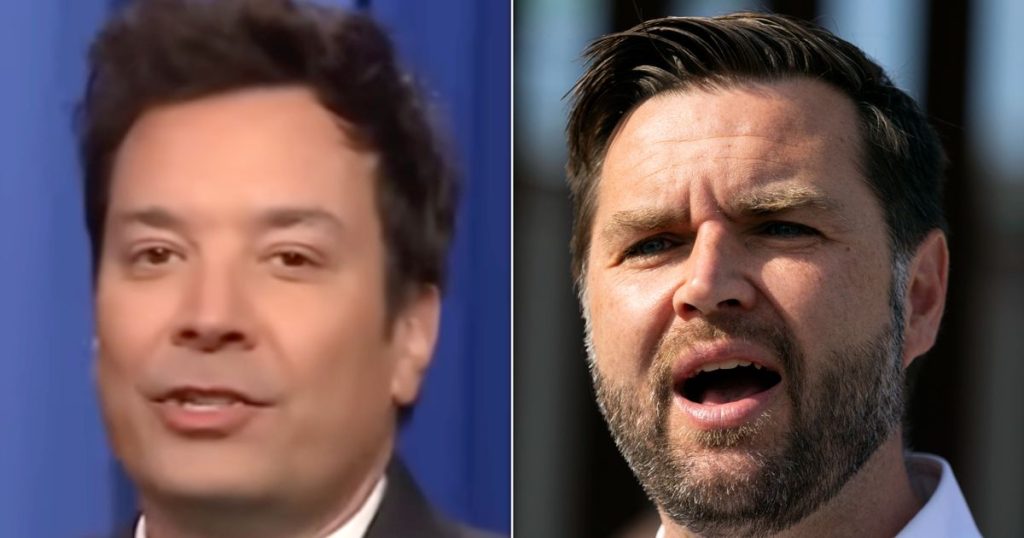On Tuesday, Kamala Harris and Donald Trump participated in a debate with no crowd present, a situation that Senator JD Vance is familiar with, according to a joke made by Jimmy Fallon. The absence of an audience led Fallon to make a sly dig at President Joe Biden, referencing his poor performance at a previous debate that led to him dropping out of the race and endorsing Harris as his successor. The lack of a crowd at the debate was a stark contrast to the packed rallies held by Harris and Minnesota Governor Tim Walz, indicating the disparity in crowd sizes between the two parties.
As part of the rules for the debate moderated by ABC News, Trump and Harris had their microphones muted when it was not their turn to speak, and there was no studio audience present. This measure was likely put in place to prevent interruptions and ensure a more structured debate format. The absence of a live audience also created a unique setting for the candidates, who had to rely solely on their debating skills and the intensity of their arguments to make an impact. This format allowed for a more focused and uninterrupted discussion on key issues facing the nation.
The joke made by Fallon about Vance’s crowd size-obsessed campaign rallies highlighted the importance that politicians often place on the size of their audiences. While packed rallies can create an atmosphere of energy and enthusiasm, they can also be indicative of the candidates’ popularity and ability to connect with voters. In contrast, a debate without an audience necessitates a different approach, requiring candidates to rely on their rhetoric and policy positions to sway viewers at home. It also eliminates the distractions and potential disruptions that can come from a live audience.
Despite the absence of a crowd, the candidates were still able to engage in a spirited debate, presenting their contrasting views and policy proposals on a range of issues. Harris, positioned on the right, and Trump, on the left, sparred over their respective visions for the country and responded to questions from the moderator. The muted microphones ensured that each candidate had the opportunity to speak without interruption, allowing for a more orderly and focused exchange of ideas. The empty room served as a backdrop for a discussion that was likely watched by millions of viewers across the country.
Fallon’s comedic commentary on the debate highlighted the unusual circumstances of the event and drew attention to the dynamics between the candidates. His joke about Biden watching from home underscored the shifting alliances and rivalries within the political landscape. The absence of an audience at the debate was a notable departure from the traditional format of such events, but it provided a unique platform for the candidates to make their case directly to the viewers at home. The muted microphones and structured format helped to ensure a more substantive and controlled discussion, allowing the candidates to engage in a meaningful exchange of ideas without the distractions of a live audience.
Overall, the debate between Harris and Trump, conducted without a crowd present, provided a platform for the candidates to articulate their positions and engage in a spirited exchange of ideas. The absence of an audience created a different dynamic for the candidates, requiring them to rely on their debating skills and policy arguments to make an impact. Fallon’s humorous take on the event underscored the significance of the debate and its potential implications for the upcoming election. Despite the lack of a live audience, the debate offered a window into the candidates’ perspectives and allowed viewers to assess their leadership qualities and policy proposals.








